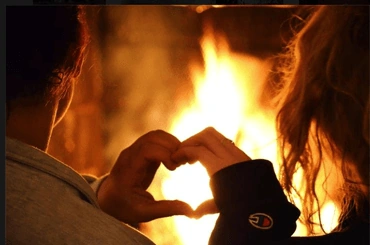10079. 'And one wafer' means lowest celestial good. This is clear from the meaning of 'wafer' as celestial good in the external man, dealt with in 9994, thus that which is lowest. In the heavens there are two distinct and separate kingdoms; one is called the celestial kingdom, the other the spiritual kingdom. Each kingdom has three parts; each has an inmost part, a middle part, and a lowest part. The inmost good of the celestial kingdom is meant by 'bread', middle good by 'cakes', and lowest good by 'wafers', see above in 9993. It says that they were to take one loaf of bread, one cake, and one wafer, and after these had been waved they were to be burned with the burnt offering, and that Aaron and his sons were to eat the bread left over in the basket at the door of the tent of meeting. These things served to mean the transmission of the good of love from the Lord and the reception of it in the higher heavens, that is, in the celestial kingdom. The transmission of that good was meant by the bread which, after it had been waved, was burned on the altar, and the reception of it was meant by the bread that was eaten. It says 'one' loaf of bread, 'one' cake, and 'one' wafer because Good from God is essentially one.
[2] Next it must be stated why it was decreed that not only the ram's fat and right flank had to be burned on the altar but also offerings of bread, which were called minchahs, when yet good is meant equally by the bread or minchahs as it is by the fat and flank. Without knowledge of why it had to be done offering bread as well would seem to be superfluous. But the reason was that sacrifices and burnt offerings were not demanded, only permitted, and that they were therefore unacceptable in the heavens. Therefore minchahs as well, or offerings of bread, were presented, and also drink offerings of wine, which were acceptable; for 'bread' means all celestial good and 'wine' all the truth that goes with it. This also explains why sacrifices and burnt offerings were called bread, and in addition minchahs or gifts; for minchahs in the original language denotes gifts. But see what has been shown previously on these matters,
Sacrifices and burnt offerings were first introduced by Eber and came down from him to the descendants of Jacob, 1128, 1343, 2818, 4874, 5702.
Sacrifices and burnt offerings were not demanded, only permitted, 2180.
Sacrifices and burnt offerings were called bread, 2165.
'Bread' means celestial good and 'wine' the truth that goes with it, 276, 680, 2165, 2177, 3735, 4217, 4735, 4976, 5915, 6118, 6377, 8410, 9323, 9545.
The like is meant by 'minchah' and 'drink offering', 4581.
From this it is evident that it was for the same reason also that the Lord abolished the burnt offerings and sacrifices, and retained the bread and wine. But it should be recognized that the flesh of a sacrifice or burnt offering served in particular to mean spiritual good, whereas the bread of a minchah served to mean celestial good, and that this was why not only flesh but also bread had to be offered.







